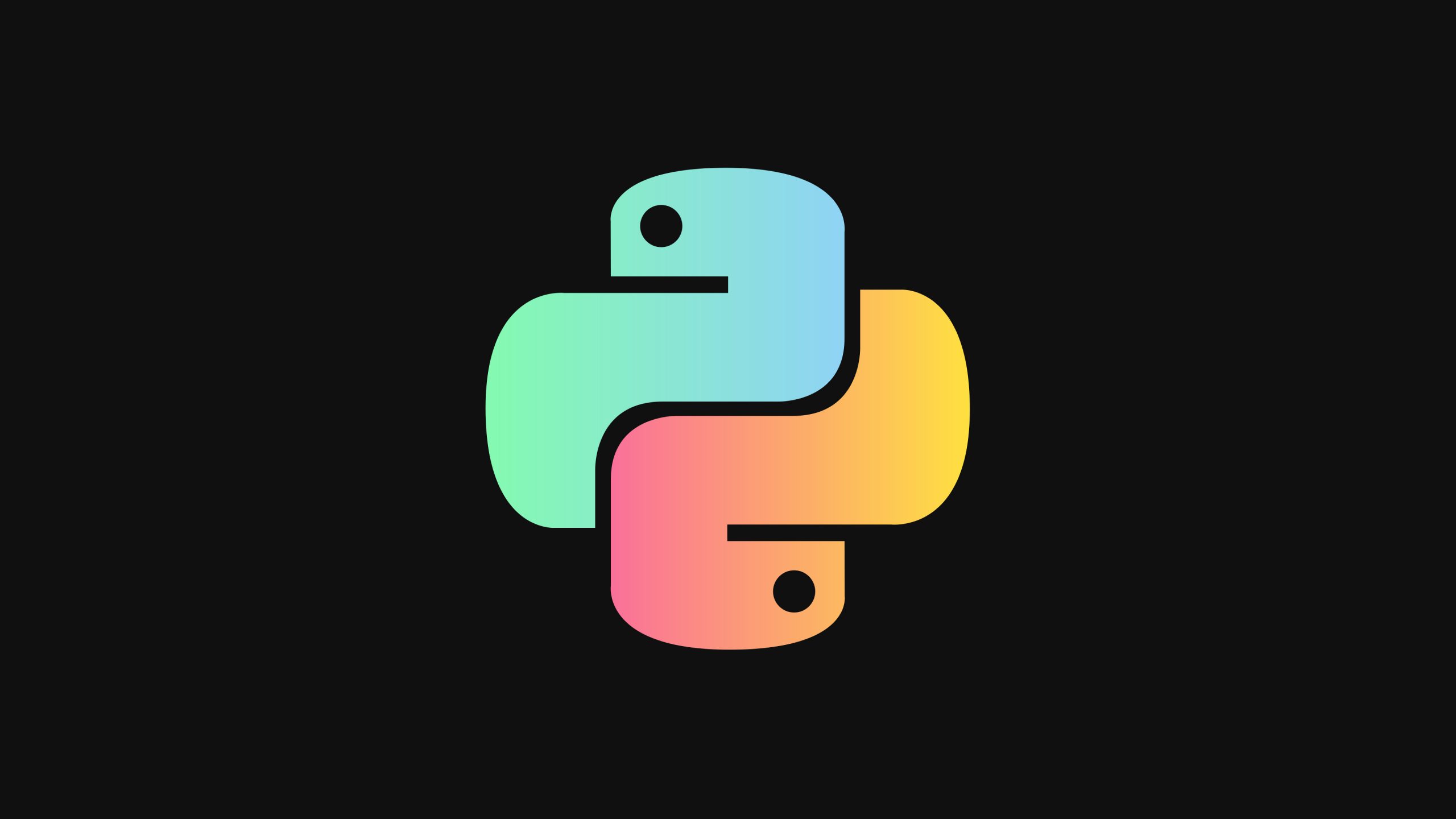
10 Best Python Books for Beginners & Advanced (Downloadable Links)
Mar 13, 2025 5 Min Read 7170 Views
(Last Updated)
Since 1991, Python has become indispensable to the programming world. There is hardly any versatile language to drive data science, automation, machine learning, Web development, Server-side development, and General Programming Stuff. It started as a scripting solution for trivial stuff but now it is everywhere, all thanks to excellent libraries, advanced frameworks, and vibrant community support.
Being an EdTech Platform, we often receive queries like what is the best way to learn Python? Which are the best python books to learn the language? Which online courses should I join to learn Python, etc.?
So today, we’re going to summarize and enlist the top ten best books categorically for Beginners & Advanced. Even if you don’t know anything about Python, you can get help from these books to kickstart your Python Career. We have specially chosen books that promote hands-on learning and are easy for beginners to follow and a few titles for advanced Python programmers to explore further. So without any delay, let’s get started.
Table of contents
- Best Python Books for Beginners
- 1. Learn Python 3 the Hard Way by Zed A. Shaw
- 2. Automating Boring Stuff with Pythonby AL Sweigart
- 3. Python Crash Course by Eric Matthes
- 4. Head-First Python: A brian friendly Guide by Paul Barry
- Python Tricks: A buffet of awesome Python Features by Dan Bader
- Best Python Books for Intermediate/Experts
- 6. Python Cookbook: Recipes for Mastering Python 3 by David Beazley & Brian K. Jones
- 7. Grokking Algorithms: An illustrated guide for programmers and other curious people by Aditya Bhargava
- 8. Fluent Python: Clear, Concise and Effective Programming by Luciano Ramalho
- Programming Python: Powerful Object-oriented programming by Mark Lutz
- 10. Introduction to Machine Learning with Python: A Guide for Data Scientist by Sarah Guido & Andreas C. Muller
- In Closing
- Frequently Asked Questions
- Can you learn Python from a book?
- Which book should I read for Python Programming?
- Is python easy to learn?
- Which book is best for python beginners?
- Can I learn Python in a month?
Best Python Books for Beginners
1. Learn Python 3 the Hard Way by Zed A. Shaw
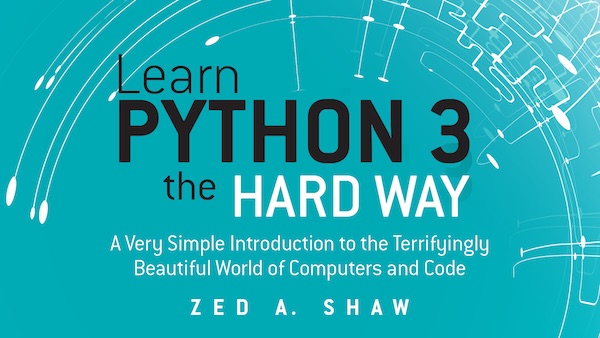
This book is well worth it. The book features 52 brilliantly crafted exercises to make you proficient in Python Basic. If you’re one of those, who want to get into the nitty-gritty foundational details of Python, you should definitely give it a try.
The author of this book Zed A. Shaw incorporates a hard-way approach to make you familiar with the documentation. We recommend you go for the latest edition of the book, which features Python 3.0 which is more relevant than Python 2.7.
Learning Python the Hard Way starts with helping you install a python environment on your system & then moves to basic Mathematics, Strings, Variables, Data Structure, OOPS, and other important topics.
2. Automating Boring Stuff with Python by AL Sweigart
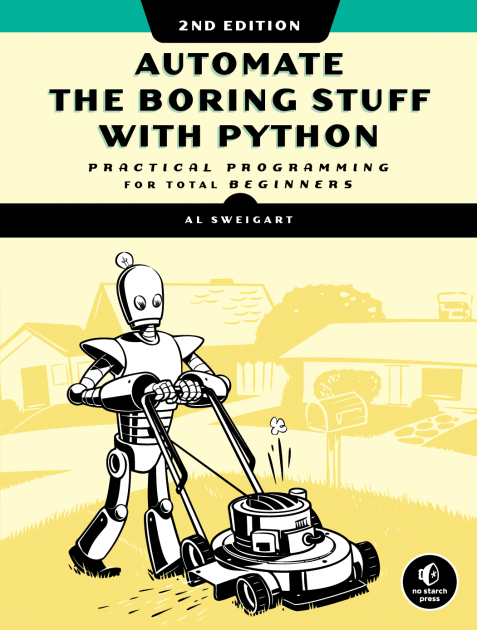
Well if you are already inside the Python Programming Ecosystem, you must have heard of this book. It is one of the most selling python books that teaches Python 3 to everyone whether it’s technically inclined beginners or someone from liberal arts, and geeks alike. The book has great command over the programming language and gives step-by-step instructions for each program.
It will straightway teach you all practical stuff like sending an email notification, reading files, appending into XLS, scraping data on the web, and automating trivial things using Python without you spending a heck lot of time learning object-oriented programming, sorting algorithms, and all sorts of computer science stuff. So if you’re the one who learns a programming language via doing real things, this book is for you. Download it here for FREE.
3. Python Crash Course by Eric Matthes
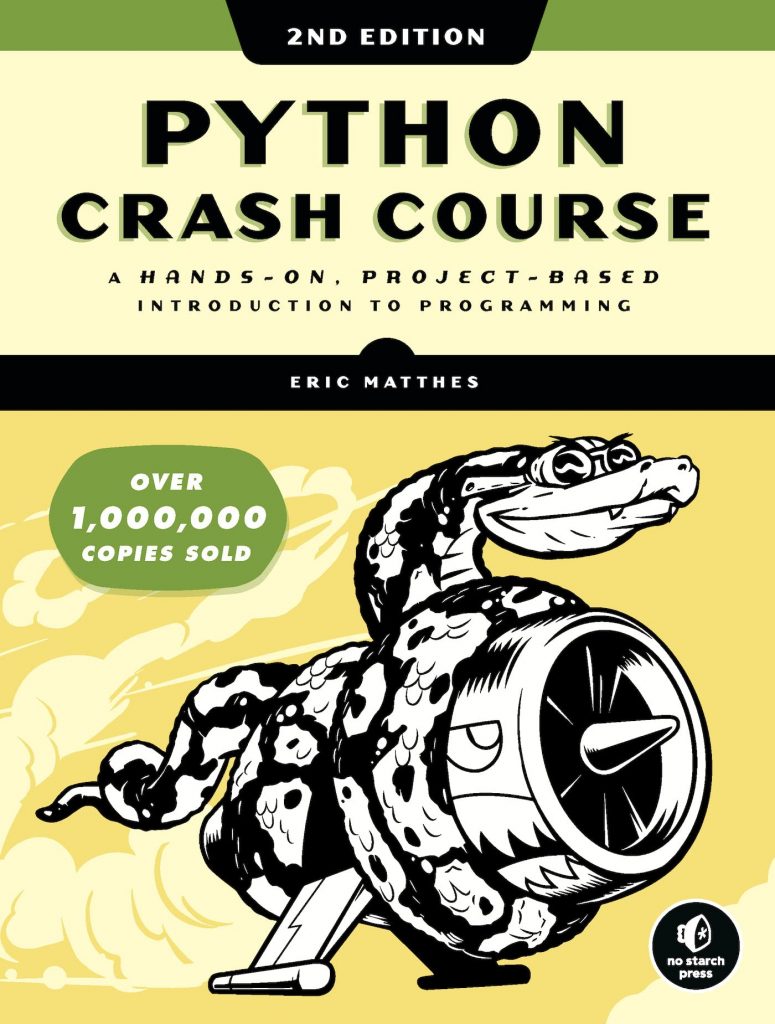
If you are looking for a fast-paced, thorough introduction to Python that will have you writing programs in little to no time, this book is for you. The book is recommended for those who have a vague understanding of the language and want to brush up on their skills.
As you progress through the book, you will learn libraries and tools such as PyGames, Plotly, MatPlotLib, and Django and work with data to create interactive visualizations. Upon completion, you will also have an idea behind 2D games, to develop and deploy web applications. Unlike other books on the list, Python Crash Course will speed up your Python learning.
Instead, if you would like to explore Python through a Self-paced course with IIT-M certification in your own language, try GUVI’s Python Self-Paced course.
4. Head-First Python: A brian friendly Guide by Paul Barry
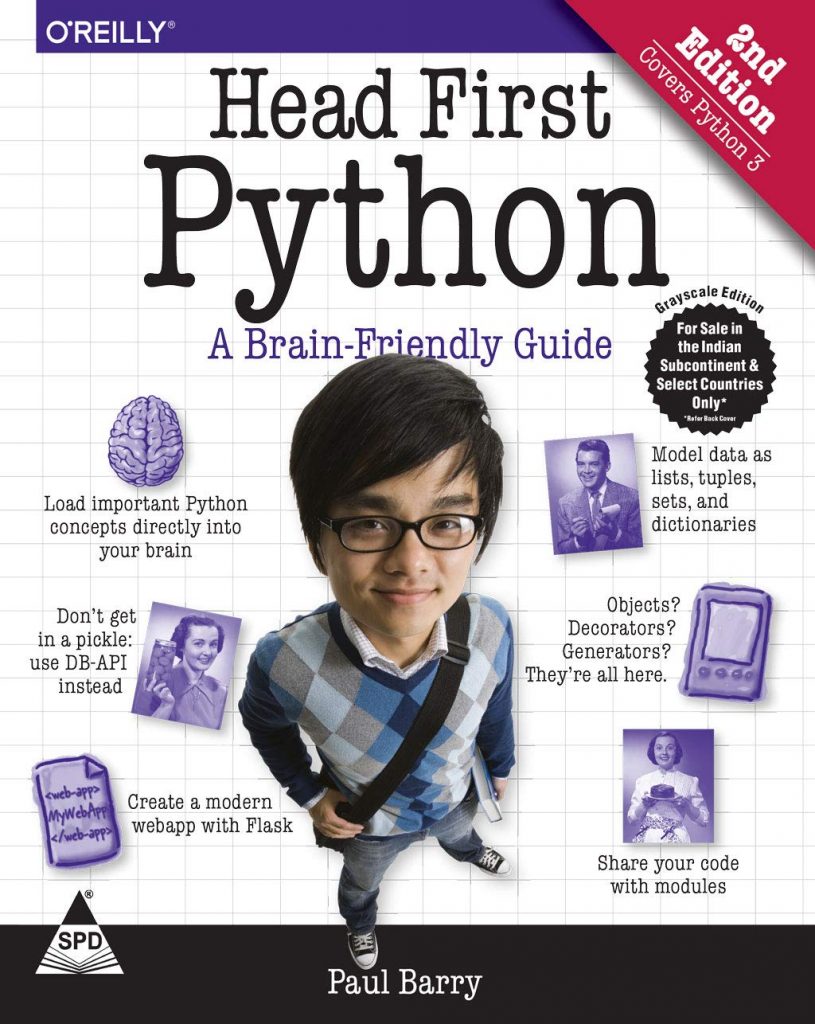
It provides comprehensive coverage of everything about Python. If you wish to learn the basics of Python Programming without having to slog through counterproductive tutorials and books, this is an easy fix for you!
The structured curriculum of this book will help you grasp the fundamentals of Python Programming with various data structures and built-in functions.
The book then gradually paces up to assist you in building your exception handling, web applications, data wrangling, and other concepts. Unlike other Python books with their text-based approach, this book follows a visual format to help you see and learn better.
5. Python Tricks: A buffet of awesome Python Features by Dan Bader
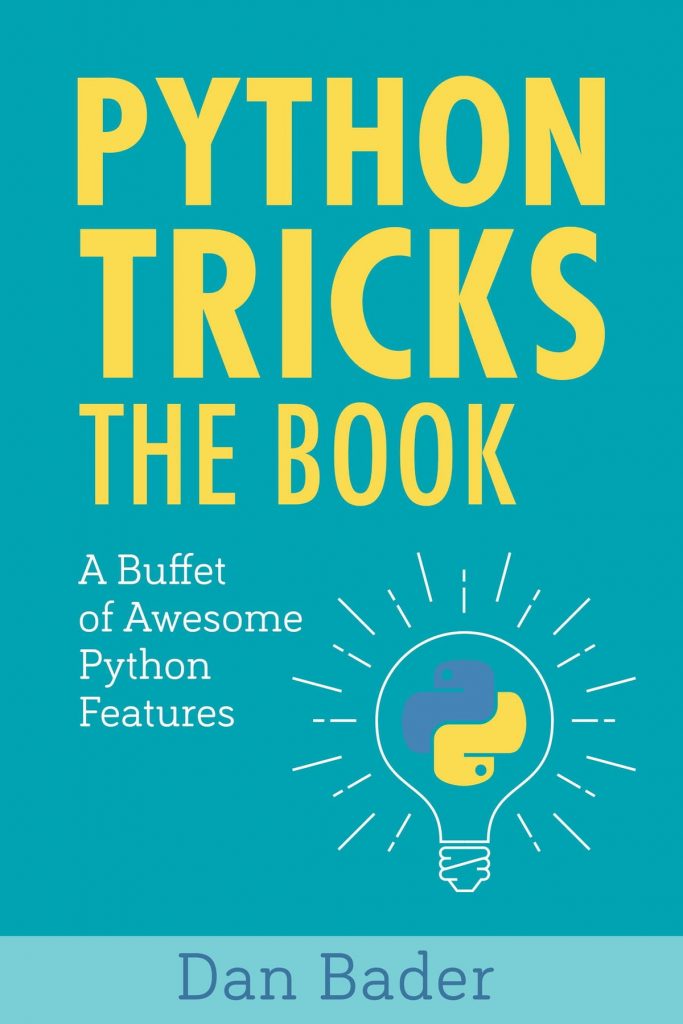
This is the book we recommend to every Python enthusiast or user irrespective of what they are doing with Python. Whether it’s scripting, web scraping, web development, or data analysis, the book is a boon for everyone. The tips and tricks featured in this book will come in handy for you when you are programming by yourself.
They tend to make your coding faster & you will procure fewer bugs while coding. It covers all the aspects of Python programming language and includes tips on how to debug your programs and manage the dependencies. You can also avail of this book for free in pdf format.
Best Python Books for Intermediate/Experts
6. Python Cookbook: Recipes for Mastering Python 3 by David Beazley & Brian K. Jones
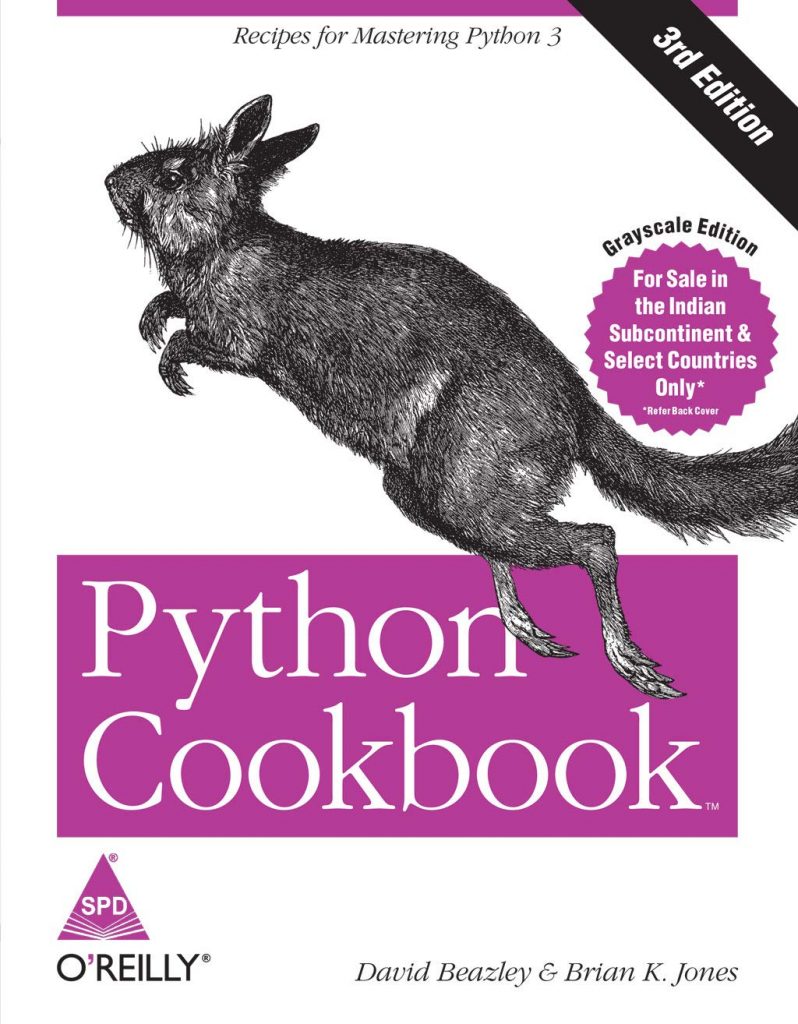
This cookbook is an accumulation of Python recipes for you to learn, tried, and tested with Python 3.3. The book will be a great benefit for those who want to update themselves to newer versions of Python. It’s a ticket for intermediate Python experts who wish to take the modern approach, tools & idioms in python, rather than just standard coding.
The book contains topics such as Data Structure & Algorithms, Iterators & Generators, function, class & objects, and data encoding & processing. Each of these recipes contains a problem and the solution to that problem along with code samples for better understanding. In the end, the book also features a discussion that premises around the solution, and how it works.
7. Grokking Algorithms: An illustrated guide for programmers and other curious people by Aditya Bhargava
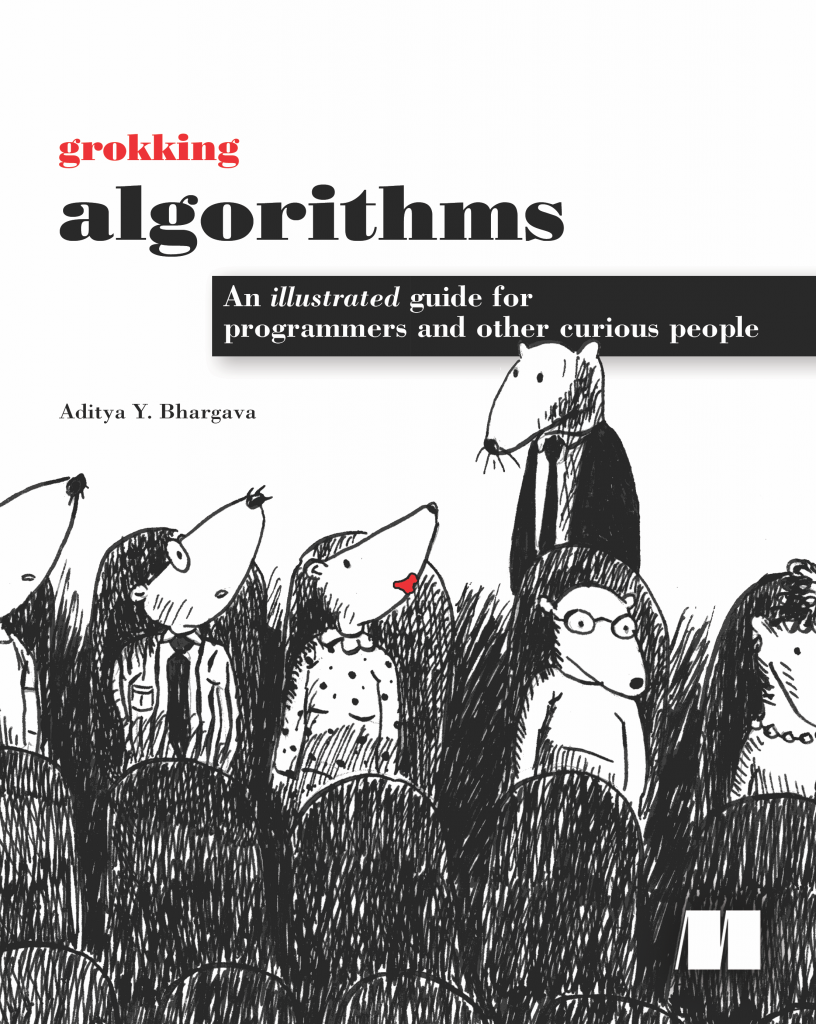
The book does the impossible: It makes math fun and engaging. Pun Intended. But on a serious note, Grokking Algorithm by Aditya Bhargava is a friendly illustrated guide that teaches you how to apply common algorithms to practical problems you face every day as a programmer.
For Python programmers, it features fully annotated code samples in Python. In the beginning, you’ll start with basic algorithm problems such as sorting and searching, and gradually you’ll pace up to tackle more complex problems such as artificial intelligence & data compression. A must-read!
8. Fluent Python: Clear, Concise and Effective Programming by Luciano Ramalho
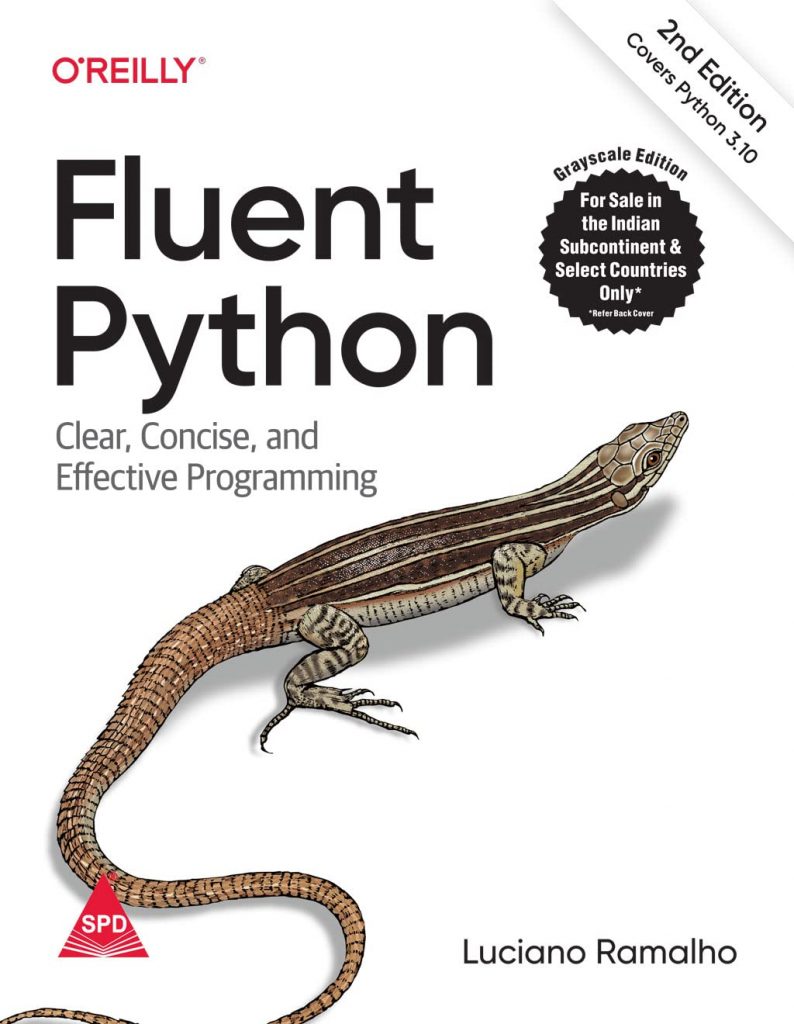
Well, the resemblance to the cover page is not uncanny. This is literally the most anticipated and famous book in Python Ecospace. It’s a detailed hands-on guide to the most neglected yet best features of Python Programming. The instructions will help you to write innovative Python programs. The author Luciano Ramalho will walk you through the features and libraries of python language and assist you in making the code faster, shorter and reliable.
The book covers numerous topics & concepts including data structures, data models, functions as objects, control flow, object-oriented programming, and also a brief guide to metaprogramming. We’d suggest this book for advanced-level Python programmers who want to get a hang of Python 3.0 and become proficient with the latest version.
9. Programming Python: Powerful Object-oriented programming by Mark Lutz
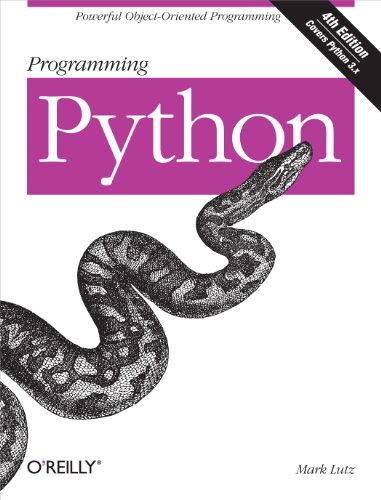
Once you’ve covered the basic ground of Python Programming, now it’s time to learn essential advanced skills to get the real industrial work done.
The book is the holy grail of Python that includes in-depth tutorials on various application domains such as GUI, the web, and system administration. The book dwells deeply on how the databases use the language, front-end scripting layers, text processing, networking, and much more.
The book explains the commonly used tools, language syntax, and programming techniques through a brief yet precise approach. It also illustrates various techniques & examples to show the correct usage of common idioms. The book is a great addition for anyone who wants to leverage Python Programming as a software development tool.
10. Introduction to Machine Learning with Python: A Guide for Data Scientist by Sarah Guido & Andreas C. Muller
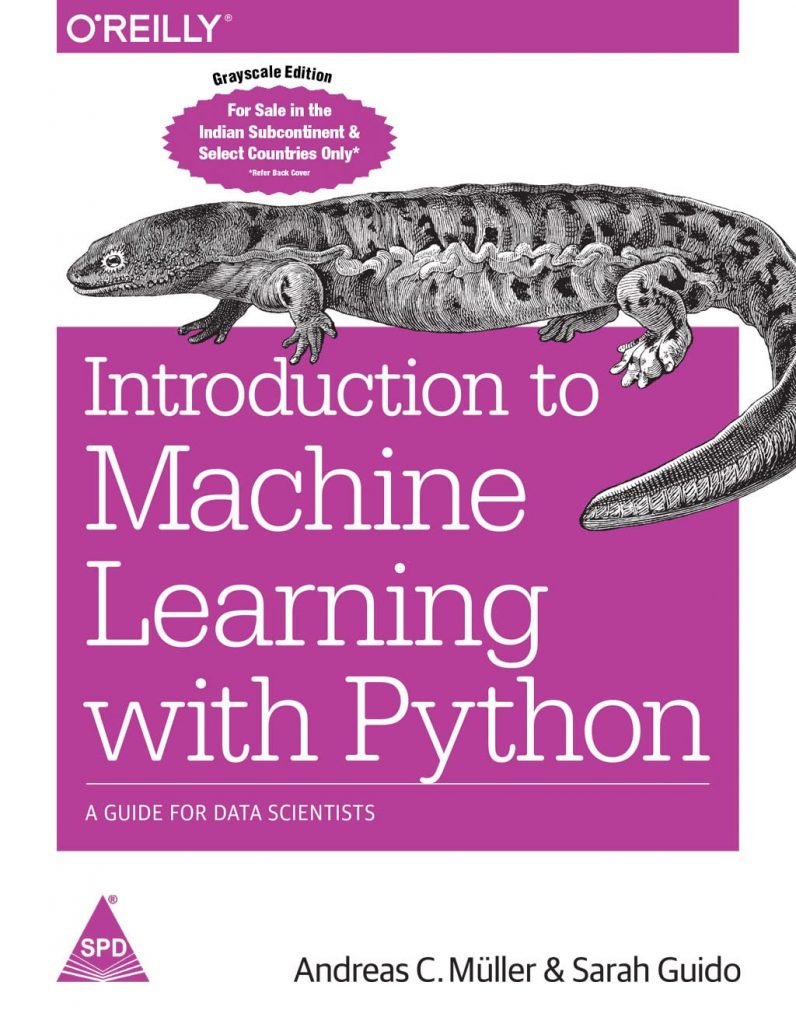
FAANG, big-scale organizations & many SEMs have incorporated machine learning as an integral ingredient in several applications for the past decade. Machine Learning, deep learning & AI applications have risen over the years.
This book by Sarah Guido and Andreas C. Muller teaches you how to use Python programming language to build your machine learning solutions.
Throughout the book, you will learn about the eminent steps required to create a rich ML-based application using Python and the sci-kit library. The book features the fundamentals of Machine Learning, its pros, and cons, and gradually transitions to advanced topics such as model evaluation, data processing, pipelines, etc.
Make sure you understand machine learning fundamentals like Python, SQL, deep learning, data cleaning, and cloud services before we explore them in the next section. You should consider joining GUVI’s Machine Learning Career Program, which covers tools like Pyspark API, Natural Language Processing, and many more and helps you get hands-on experience by building real-time projects.
Instead, if you would like to explore Python through a Self-paced course with IIT-M certification in your own language, try GUVI’s Python Self-Paced course.
In Closing
Whatever book, course, or program you pick, the key to mastering a programming language is sticking up to it, being consistent in your theory & practice, and joining multiple channels of information to keep you updated. Also, don’t forget to go through and summarize the Python documentation of the Python Version, you’re currently using.
Python Vs Java? Which programming language should you pick?
Frequently Asked Questions
Can you learn Python from a book?
Absolutely- Books, Courses, YouTube Videos, Blogs, Live Programs- all are just sources of instructions, it’s up to you which medium helps you retain more and grasp the functionalities of Python.
Which book should I read for Python Programming?
You can read any book given above, just go through some snippets from google first. If the tone & delivery of the book resonates with your mind, go ahead and buy or download it. If it doesn’t, you can move on to the next book.
Is python easy to learn?
Python is considered one of the easiest programming languages in the IT landscape. Generally, it will take you around two to six months to learn Python, however, you can decide at your own pace. You can learn enough to write your very first short program in a matter of minutes.
Which book is best for python beginners?
We recommend you pick “Automate the Boring Stuff with Python” by AI Sweigart. It is one of the best Python books for beginners that follows a fun language and interactive tone to help you learn Python. If books aren’t for you, you can also avail of our IIT-M curated Python course for free!
Can I learn Python in a month?
Again, it’s up to you & your mind, how easily and quickly it grasps new concepts and technologies. If you keep up with the dedication and consistency, yes, you can learn Python within a month. Click this link to start learning your first module.

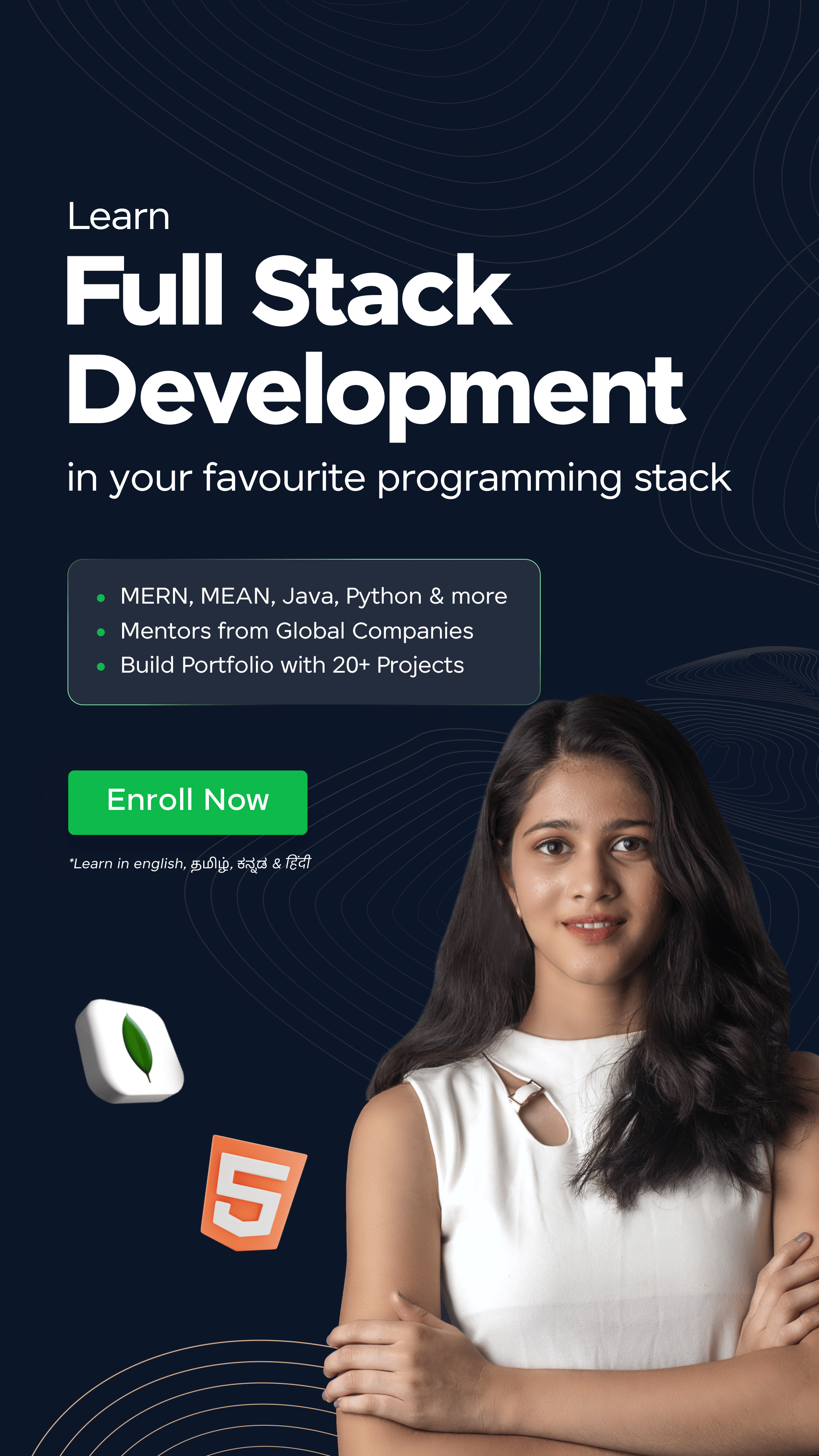



















![What is TypeScript? A Beginner's Guide [2025] 12 typescript](https://www.guvi.in/blog/wp-content/uploads/2025/05/What-is-TypeScript_-A-Beginners-Guide.png)
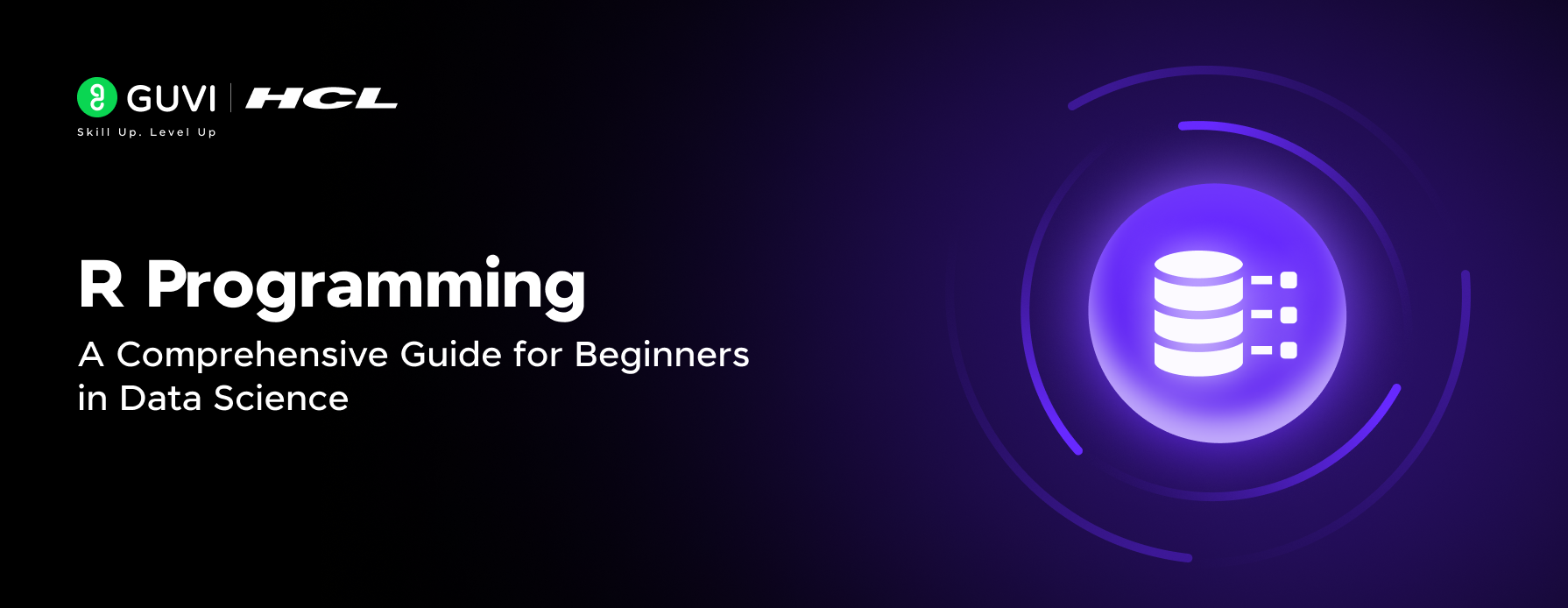
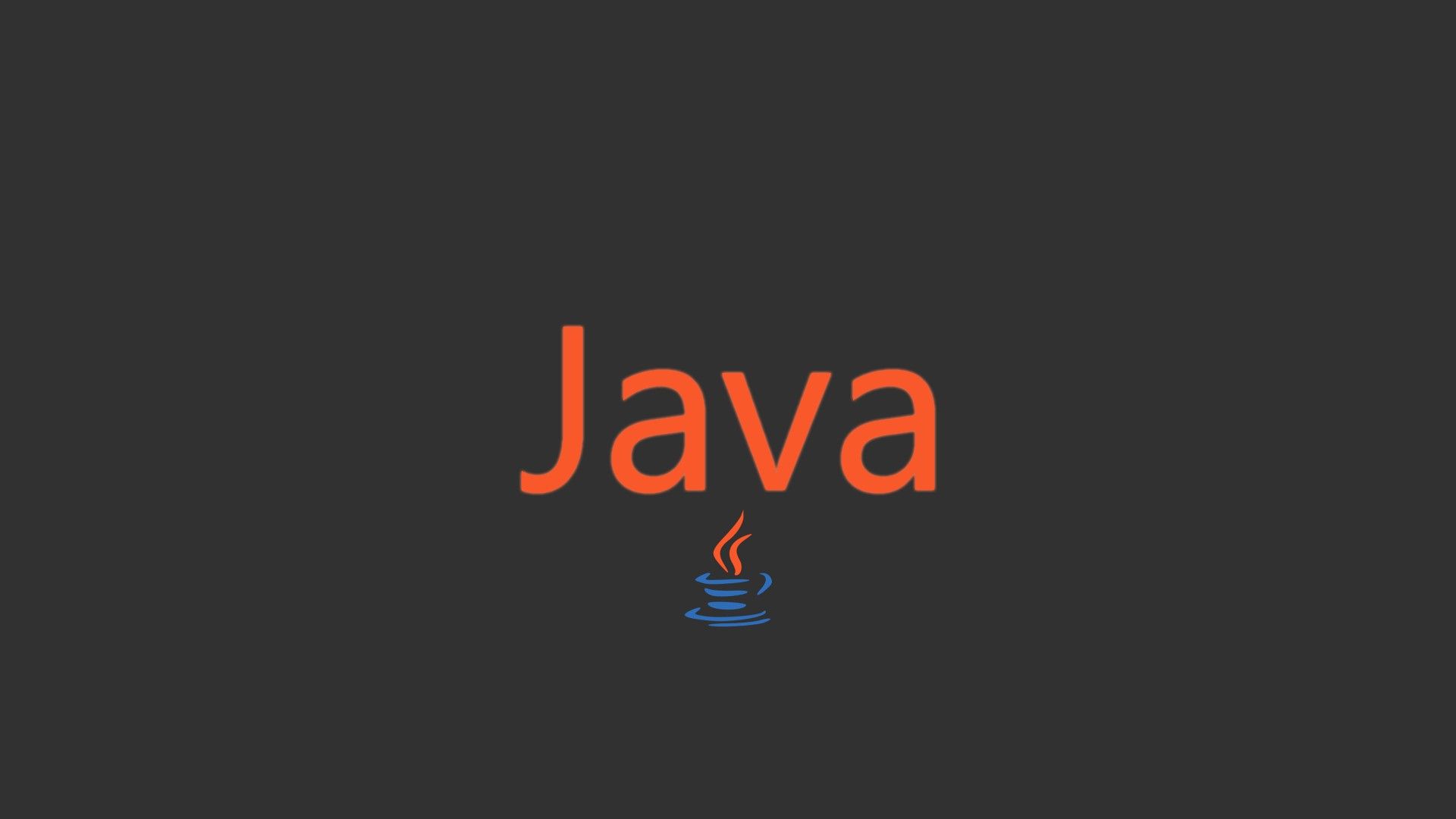
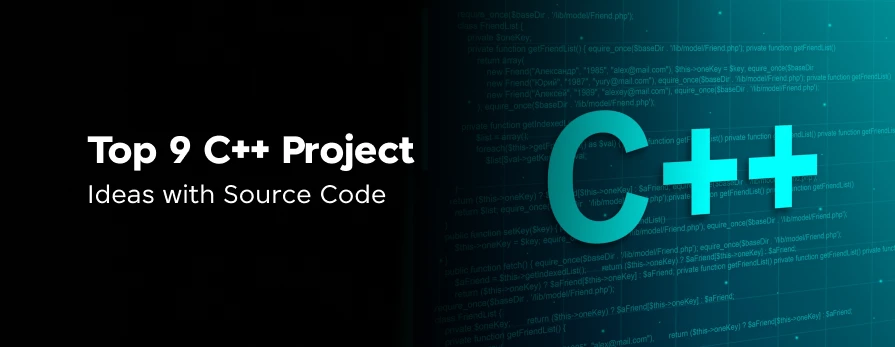
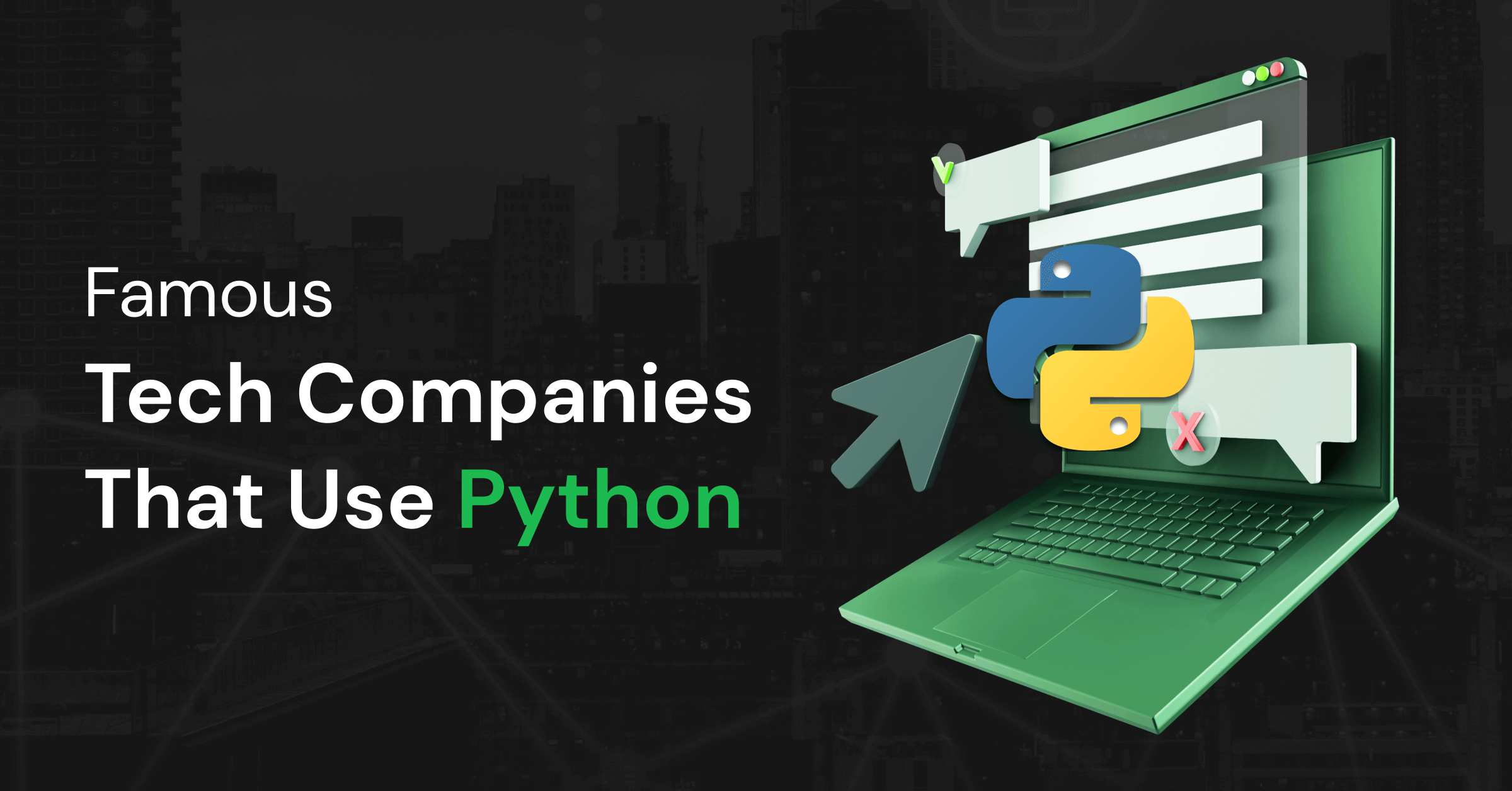
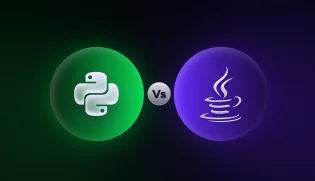
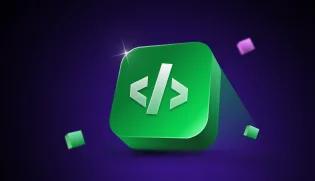
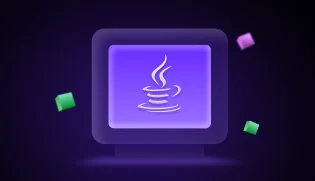
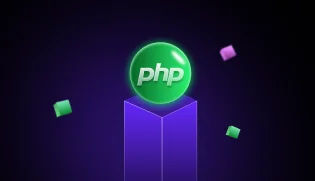

Did you enjoy this article?